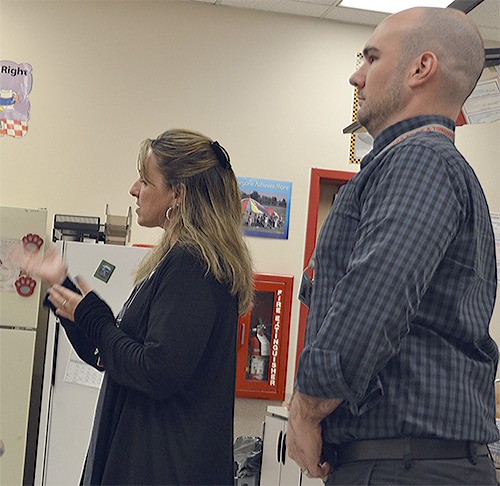MARYSVILLE – Suicide is not easy to talk about. It makes many people feel uncomfortable.
But the only way to reduce incidents is to talk – before it happens.
The Marysville School District knows that, and its director of counseling, Josh Webb, is working with Cedarcrest Middle School on a pilot program that will be expanded next year.
It certainly is needed. Youth suicide in Snohomish County is on the rise – doubling in the past year alone from five to 12. Common factors were depression, self harm, access to firearms and students whose academic performance declined. Nationwide, it is the third-leading cause of death among youths. Statewide, it is the second-leading cause, behind accidents.
An 18-year-old from Marysville killed himself April 21. He was enrolled in Open Doors Youth Reengagement, a program that assists students who aren’t on target to graduate from high school by age 21.
Webb worked with Cedarcrest counselor Tara Smyth in talking to a sixth-grade health class recently.
The presentation started with a 17-minute video made by middle schoolers for middle schoolers. In a nutshell, it told the kids simply to ACT (Acknowledge, Care, Tell) to save a life.
•Acknowledge means not to make light of talk of suicide or someone hurting themselves. Threats are serious. Don’t just laugh or joke about it because it makes you feel uncomfortable.
•Care means to show compassion for the person. Tell them you are worried about them. Stay with them and help them seek help.
•Tell means to try to convince them to talk to an adult they trust, someone who is easy to talk to. It can be a parent, teacher, counselor, friend … any adult. Talking helps people understand situations better.
IF, the friend won’t do it, you have to TELL. The friend may be angry at first, but they will be safe. They likely will thank you later for saving their life.
Webb followed up on that last aspect because it can be the hardest for young people. He said it shows that you care if you tell, and if you don’t and something bad happens you would feel even worse.
“You’re not narcing or being a tattletale,” Webb said, adding these people are suffering in silence. The reason they told you is likely because they want you to help them.
He said talking about suicide doesn’t give people the idea to do it, quite the opposite. It gives them a chance to seek help.
He added that people need to get over the stigma of having emotional problems.
“It’s treated differently than a physical problem,” he said, adding if you injured your knee you wouldn’t just try to get over it.
“You’d try to get help, of course,” Webb said.
Smyth asked the kids when they left not to make fun of the lesson if they felt uncomfortable about it.
“Others have dealt with this,” she said, adding friends may have family members who committed suicide. “Look out for your friends.”
After the class, Smyth and Webb looked at exit slips the students handed in. Two of them said they had concerns about themselves or friends and would like to talk to someone.
Smyth said they would talk to those students later that day. “It’s working, saving lives,” she said. “It’s making it (suicide) OK to talk about it.”



